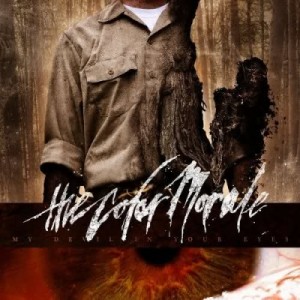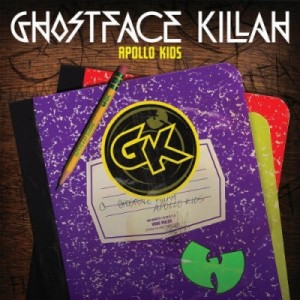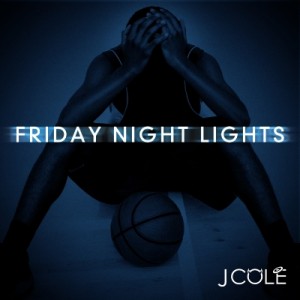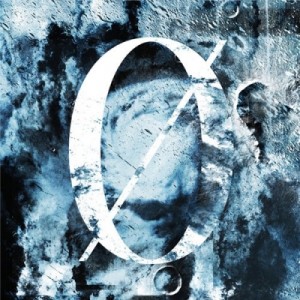Album Reviews
Review: Valencia – Dancing With a Ghost
Valencia – Dancing With a Ghost
Released: October 12, 2010
Label: I Surrender Records
Purchase: iTunes | Amazon
Every night, as we are about to lazily drift off to a wonderful place known as sleep, most of us go into a deep state of thinking. Whether it be about what we’re going to do the next day, a contemplation of life, or just why our room smells so bad, we all think about something leading up to that glorious state of unconsciousness. These things may or may not affect the way that we dream. Dreams can be anything from happy, to dark, to just bizarre (or all of the above!) and as we listen through the third album by the five-piece alternative/pop-punk group, Valencia, titled Dancing With a Ghost, it can somewhat be comparative to the different stages and/or types of dreaming.
As the album opens with the light, poppy guitars and sing-along vocals leading into the first few tracks, we are submerged in a blissful state of a fun and happy dreaming (“Dancing With a Ghost” and “Still Need You Around”). As frontman Shane Henderson sings along to the spirited guitar riffs of Brendan Walter, JD Perry, and George Ciukurescu and the delicate drums of Daniel Pawlovich, Henderson remits an uplifting message. We, as the listeners, will find ourselves floating along jubilantly through the sunny dream world, not a care in the world.
But as we are all familiar with, dreams aren’t always such a playful environment and constantly change as we sleep so soundly in our beds. As Dancing goes on, our sunny dream world slowly shifts to a bit more serious atmosphere as we slowly realize that everything is not as happy as we originally had thought (“Consider Me Dead” and “Losing Sleep”). The scenery changes to a still pleasant, but slightly bizarre world. As Henderson exclaims “Give me the chance to speak my mind/My opinions are the social kind/If it’s you for you and I for I/Then one of us will leave here blind/You know I won’t give up without a fight/Even if I’m the one who’s wrong and you’re who’s right” leading the way accompanied by spacey guitars, troubles begin to surmount in the dream, setting the stage for an unwanted antagonist to arrive.
Then, suddenly, the effervescent world is crudely interrupted entirely by the deeper problems hidden in our subconscious and the dream becomes a dark, perplexing place; the previously whimsical feeling is almost entirely gone, replaced with a worried uncertainty as the music becomes increasingly frantic in our minds (“Friday Night”). Storms sweep in in the form of sadistic guitar tones and dark lyrics (“When desperate we collide and disappear in fear/We’ve been living in a dream/Selfishly, I try to blur the lines that hide that I/I guess I fucked up/I guess I was wrong”), and pounding drums coupled with the thunder of the guitars begin to interfere with the previously bright sunlight that was shining so beautifully and as suddenly as the storms had appeared, they subside.
We are now left feeling lost, and somewhat alone (“Somewhere I Belong”). The words “My life has always been a dead end street/with heavy eyes that shoot through me/I slipped somewhere in between what’s right and wrong” ring through the light gray clouds backed by an arrangement of strings, and we start to question what just happened, why it happened, and if things will go back to the way they were before. But at this point, we can’t even remember what was so happy about the dream in the first place. Perplexity sets in once again, and we begin to question whether our dream is reality or in fact a dream. The pace of the music begins to increase and this state of confusion leaves us in a very odd, yet somehow pleasing mood as delightful guitar-work reveals a certain hope as they back the worried lyrics (“Days Go By” and “The Way”).
Abruptly the dream changes once again. Making a quick transition from spaciness and confusion, to a more familiar pop-punk driven urgency, we finally realize what we have to do to get back to the once-happy world that is slowly fading from our memories (“Stop Searching”). As we come to a certain light, the dream starts collapsing around us as we begin to finally awaken. We know what we want, but everything is becoming so blurred around us, and as our happy place is nearly in reach once again, the dream ends. We are awake with nothing but a vague memory of a long journey of happiness, struggle, and emotion that we long to see again. Luckily, in the case of Dancing With a Ghost, we can revisit this dream whenever we please, and admire its brilliance and intricacy with the same enjoyment each and every time.
8.5
Standout Tracks: “The Way,” “Friday Night,” “Losing Sleep”
Review: Cut Copy – Zonoscope
Cut Copy – Zonoscope
Released: February 15, 2011
Label: Modular Fontana
Purchase: iTunes | Insound | Amazon
Daft Punk recently rocked movie theaters and headphones with their soundtrack to Tron: Legacy, but there hasn’t been much to keep the dance going since then. Listeners in this plight need only to take a gander at Australia’s Cut Copy for their next dance-rock fix. Their third album, Zonoscope, was released February 15, and when it shines, it shines brightly.
The party starts with the techno opening to “Need You Now”, building up and adding layers of sound until Dan Whitford’s vocals kick in. Though initially slightly off-putting, in this song, he displays a decent range and contributes his own unique part up to the climactic ending. It is a great way to open the album and a display of Cut Copy playing to their strengths.
These strengths shine through for much of the first half of Zonoscope. “Pharoahs & Pyramids” begins with an intriguing synth intro to build anticipation. Slowly, more instruments and layers are added, creating a richly textured musical landscape. As the music swells, it suddenly gives way to a fun, syncopated bridge, eventually erupting into dance nirvana.
“Blink and You’ll Miss a Revolution” is full of musical mischief, with wooden blocks belying the initial bass groove. As the song continues, though, the music evolves, not only by adding more layers, but by changing the placement and instrumentation of these starting musical lines. By the time the slower instrumental “Strange Nostalgia for the Future” kicks in, it is a much-deserved break from the energy-infused first half.
Unfortunately, it is also at this point that the fun begins to wane, as the album is rather front-heavy. Listeners may float along with the stripped down “This is All We’ve Got,” but for the most part, it is a forgettable journey. The same can be said of the overly-long “Hanging Onto Every Heartbeat.”
“Alisa” boasts some delightful synths in the intro and pre-chorus, but these give way to a more basic guitar and drums combination. The song isn’t bad, and the chorus has a definite energy, but it lacks the spark of earlier tracks.
The party eventually recovers with “Corner in the Sky,” a wonderfully ambient number. Bolstered by a deep, techno bass, a great pre-chorus synth line, and the explosive chorus, it brings the sound full circle and paves the way for closer “Sun God”. While not a great song, especially vocally and lyrically, it does a good job with winding down for the night, though it does border on the excessive with ten minutes of closing instrumentals.
Cut Copy have definite skills in their musicianship, and their most consistent weakness lies in the vocals and lyrics. Most of the time, Whitford’s voice lacks passion and he slurs his words. It serves a purpose as another instrument to add to the texture, but little more.
The same can be said of the lyrics, which, with the exception of “Corner of the Sky”, rarely rise above a surface depth. This is much more acceptable though, as the words don’t really matter with music so rich.
Zonoscope is exceptional when it plays to Cut Copy’s strengths, but falters when it strays from them. Even so, the excellent highs far outweigh the forgettable, skippable lows. They are talented musicians, but they should stick to what they know best in the future.
7.6
Standout Tracks: “Need You Now”, “Pharoahs & Pyramids”, and “Corner of the Sky”
Review: Starfucker – Reptilians
Starfucker – Reptilians
Released: March 8, 2011
Label: Polyvinyl Record Co.
Purchase: iTunes | Insound | Amazon
What’s in a name? Unfortunately, a lot; something Portland indie-eletronic rockers Starfucker can certainly attest to. Since forming under the moniker Starfucker, the band has rotated between the more appropriate STRFKR, PYRAMID, and finally, Pyramiddd. What do all of these names have in common? Not very much to be honest, and for that reason, the incredibly erratic name changes have confused fans hoping to catch the band’s stunning live shows. Perhaps on yet another whim, the band finally decided to change back to the notorious Starfucker, keeping STRFKR reserved for all-age venues.
As we all know, there is more to a band than their name, but the hype and notoriety surrounding Starfucker’s choice of names can certainly be accredited as catalysts in the band’s three short and promising years of existence. Reptilians is a capable, ambitious effort to meet the hype and match the expectations of fans after a slightly disappointing debut. Where the self-titled Starfucker was highly inconsistent and spotty, Reptilians is a conscious effort by the band to produce the solid pop songs that they always had the potential to.
Opening track “Born” blurs genres, beginning the journey that is Reptilians. Straying somewhere between acoustic and electronic, “Born” feels like a meeting between Death Cab For Cutie and Passion Pit – a very fruitful meeting at that. “Julius” keeps up the pace, featuring layers and layers of instrumentation. Underneath it all is a simple, throbbing bass line, covered with glittering synth lines and finally, Joshua Hodge’s distinctive, spacey falsetto.
Much of the album is built with a similar blueprint in mind. Reptilians engulfs the listener with its waves of fast-paced, driving melodies and sweeping synth riffs. There is something inherently fun about a solid, chipper synth tune and Starfucker certainly knows this; for the most part, they excel at creating ridiculously catchy dance tunes. “Mystery Cloud”, the second single from the album, is centered on a dancy, repetitive riff, carrying the tune from start to finish.
Further down the tracklisting lies “The White Of Noon”, one of the best songs on the album, but could also be described as the only song on the album or even worse, the band’s entire discography. As Reptilians drags on, the sounds begin to merge together, with no real distinguishing factor between them. Over the course of the album, the mishaps on their self-titled album begin to rear their heads again. While Reptilians is more consistent than the former, the band still seems to struggle to pull together an entire album of solid music.
This is not to say, however, that Reptilians is a bad album or that Starfucker is not creative enough to create a good album – both of these opinions lie on polar ends of the spectrum. Instead, Starfucker lies somewhere in between “an instant classic” and “average”. When considered individually, many songs from Reptilians, such as “The White Of Noon”, debut single “Julius”, and the more relaxed “Mona Vegas”, provide brilliant lapses into a jaunty, atmospheric escape of sound.
For the most part, there is nothing intrinsically new on this album that hasn’t been already done. Starfucker, ironically, find themselves trapped in a genre they helped to father, surrounded by the similar-soundingPassion Pit and MGMT. I, however, am not complaining. This is catchy, spacey, and overly fun synth rock. This is party music to live your life to. Or, if you are more of a partier, this is lively music to party to. Either way, you’ll have a good time.
8.6
Standout Tracks: “Julius”, “Death as a Fetish”, “The White Of Noon”, and “Mona Vegas”
Review: Bright Eyes – The People’s Key
Bright Eyes – The People’s Key
Released: February 15, 2011
Label: Saddle Creek Records
Purchase: iTunes | Insound | Amazon
In the first single from The People’s Key, “Shell Games”, frontman Conor Oberst reflects on his career, referencing the covers of his past few albums and suggesting that fame is a “heavy love.” Such nostalgia should be no surprise, as this will be his seventh and final album as Bright Eyes. Even though this is the only song that lyrically reaches back to his past, it is clear that he had the past on his mind through much of the writing process of this album, taking much from his back catalog musically. Bright Eyes fans may like the prospect, but in reality, it turns out to be one of the album’s significant weaknesses.
As Oberst is wont to do, he opens with a strange monologue, this time a person explaining his vision of life’s origins. This appropriately sets the tone for the album’s major motif: an exploration of different schools of religious thought. When a lonely electric guitar emerges from the speech, listeners are exposed to a darker Bright Eyes, one evocative of Brand New. The song continues to build, adding instruments at effective times, eventually climaxing into its epic end. After a couple of weaker side projects, Oberst is back to form… for a while.
“Shell Games” starts with a familiar Bright Eyes chord progression (think “Clairaudients”), but soon kicks into an odd synth number evocative of Digital Ash in a Digital Urn. Widely regarded as one of Oberst’s weaker efforts, this is perhaps not one of the better sources from which to draw inspiration, but Key does so quite often. The song’s structure and lyrics mostly raise it up above the weaker music, but unfortunately, other songs aren’t so lucky.
“Approximate Sunlight” is one such song. While some may applaud the song’s experimentation, it is very difficult to listen to. The vocals have a hollow echo, which is frustratingly used on nearly half of Key’s songs, and the chorus is mildly cringe-inducing. There are some decent atmospheric guitars, but they are drowned out by excessive production. The lyrics don’t warrant the dark ambience, and there’s no real payoff to the song.
“A Machine Spiritual (The People’s Key)” is a better use of the digital sound, complementing the general feeling of the moderately vague lyrics. Despite going digitally overboard for one repetition of the main theme, the song’s structure and catchy chorus helps it overcome the overproduction. “Triple Spiral” also manages a nice balance between the new and old sounds, making it one of the better songs on the album.
“Haile Selassie” draws musical inspiration from another well: Oberst’s solo material. Sounding very much like a B-side from his self-titled album, it has a fun, bouncy air, but can’t sustain itself for its full length. “Jejune Stars” is similarly upbeat and actually reminiscent of label-mates Cursive. The playful guitars blend well with the lyrics, making it a simple, pleasant song.
While The People’s Key’s lyrics are not bad, it doesn’t feel as if Oberst is trying as hard this time around. Bright Eyes always drew such strength from very simple, very relatable lyrics (e.g. “I’m leaving this place, and there’s nothing I’m planning to take, just you… just you”). On The People’s Key, however, they’re much more vague and the references more obscure. Lines like “Now you are how you were when you were real,” may make sense in context (key word may), but they lack the simple intimacy of previous material, partly because of the album’s themes. Oberst isn’t making observations about life, but general statements relating to different religions, which are much harder to connect to.
The one song that breaks this mold, both musically and lyrically, is the beautiful “Ladder Song,” which is actually one of the strongest tracks that Oberst has put to record. A touching piano complements Oberst waxing poetic about death: “You are not alone in anything. You are not unique in dying.” A late song, it is a welcome respite from some of the album’s weaknesses and highlights exactly what The People’s Key is otherwise missing.
It may be harsh to say that The People’s Key is a disappointment, but it’s hard to deny that there is room for improvement. After the brilliance of Cassadaga, Bright Eyes reverted to a sound that wasn’t widely welcomed the first time around. It isn’t omnipresent like in Digital Ash, but the digital specter rising from those ashes haunts too many songs in either the vocals or music. Although not without its strong points, The People’s Keywon’t be the one that Bright Eyes is remembered for.
7.2
Standout Tracks: “Firewall”, “Triple Spiral”, “Ladder Song”
Review: Man Overboard – Real Talk
Man Overboard – Real Talk
Released: July 20, 2010
Label: Run For Cover Records
Purchase: iTunes | Amazon
I’ll be honest, I had no idea what to think about four-piece, pop-punk outfit Man Overboard when I first heard their debut full-length album titled Real Talk. I don’t know if it was the discreet use of auto-tune or the incredibly “cutsie” lyrics that nearly every song is contrived behind. But whatever reason forced me to set this album aside for months on end was a silly mistake, as recently I’ve given this legitimately fun pop-punk album the rotations it deserves.
Opening is the title track of Real Talk, which is the one song that lasted with me before I gave the rest of the record a chance. Beginning an album with a huge bang, “Real Talk” hits hard, showcasing the dual vocals of Nik Bruzzese and Zac Eiesenstein in a glorious, truly raw style that left me, as a huge pop-punk fan, salivating to see what came next. Upon first listen I was very disappointed when I heard the rest of the album after my ears witnessed such a stellar opener, but months after my first spin, I’m glad I gave this album one last chance. The addicting drums of then-drummer Justin Collier on “Fantasy Girl” and the huge sing-along outro to “Parting Gift” had left me itching my head in amazement. How I ever shelved this gem of a pop-punk album is beyond me, but once again, I was floored that I decided to give Real Talk a second chance, and I hadn’t even gotten to the meat of the record that is the latter half. “Al Sharpton” and “I Like You” show that Man Overboard know how to incorporate a catchy guitar line with an even catchier chorus, while acoustic driven “Sidekick” and the meaningful lyrics of “Septemberism” add a certain amount of depth to the previously somewhat one-dimensional album.
Though, this album has many major jams, it also falls victim to a common trend of what up-and-coming bands tend to offer with debut albums. The whiney vocals, accompanied by far too sugary sweet lyrics on “FM Dial Style” comes off as if Christofer Drew of NeverShoutNever had guest-written it, and re-released track, “Montrose” offers next to nothing. I would be undeniably satisified if one of these two tracks were scrapped during pre-production, leaving a perfect 11-track pop-punk summer rocker, but unfortunately, I can’t control the track listing.
Man Overboard has proven that they are very capable of contributing quality music to the recently rejuvenated pop-punk scene with this near stellar debut. And with their recent surprise signing to Rise Records, I expect nothing but huge things in the future for this group of young guys from South Jersey, which includes succeeding in their obvious goal to “defend pop-punk.”
7.8
Standout Tracks: “Septemberism,” “Al Sharpton,” “Real Talk”
Review: Ghostface Killah – Apollo Kids
Ghostface Killah – Apollo Kids
Released: December 21, 2010
Label: Def Jam
Purchase: iTunes | Insound | Amazon
Despite being a largely consistent critical hit across the fifteen years in his solo career, former Wu-Tang Clan member Ghostface Killah has never been able to tap into the commercial success of his former group. His last album, Ghostdini was panned for straying from what he did best, and some feared that he was beginning to lose his touch. His ninth album, Apollo Kids, proves that this was only a misstep and not an indication of future trends.
Ghostface employs his traditional alchemy by combining ’70’s samples, innumerable guest stars, and stories of growing up on the streets of Staten Island, yielding gold in track after track. One of the better samples comes immediately, with Ghostface asking on “Purified Thoughts”, “Am I a good man?” A reverent reflection on how far he has come, the theme of divinity is appropriate for his status in the rap world. This segues nicely into the acceptance of his rise in “Superstar,” boasting some of the strongest music on the album.
Not content to bask in the good life, though, Ghostface is quick to pay respect to his roots, and a good half of the album focuses on different facets of this theme. The gritty “Black Tequila” draws comparisons between New York gangs and Italian mobsters. “In Tha Park” traces Ghostface’s origins, paying homage to his musical and social influences. The album’s best track, “Ghetto” hits all of the right notes. The sample (Marlena Shaw‘s “Woman of the Ghetto”) is touching enough on its own, but to hear the Ghostface and his guests’ responses to such questions as “How do you raise your kids in the ghetto?,” driven by an appropriately soft beat, propels the song to a new level.
The album’s tracks focusing on relationships, or lack thereof, are less effective. The sample on single “2getha Baby” breaks the pace of the song (and through a bold looping decision, even breaks its own pace), but it just isn’t impactful enough to warrant such a break. “Handcuffin’ Them Hoes” is a standard “love ’em then leave ’em” rap that delves into crassness that Ghostface should be above by this point in his career. Guest artist Jim Jones‘ voice fits the beat and lyrics, but that isn’t necessarily a good thing.
Jones aside, many of the guests on Kids pack a punch. Busta Rhymes intricately weaves his way through an exciting verse on the already energetic “Superstar.” Black Thought infuses his rhymes with real passion on “In Tha Park”, aptly concluding his story with “That’s the reason for my real rap penmanship. / That’s where I started it and that’s where I’mma finish it.” Fellow Wu-Tang members Raekwon, U-God, and Method Man bring the album to a strong finish. If the other guests fall short, it’s more often because of what they’re stacked up against rather than their own deficiencies.
Even though Kanye West shook up the rap world only a few weeks before the release of Apollo Kids, Ghostface shouldn’t be overlooked. In contrast to West’s bombastic, radio-friendly songs, Ghostface’s gangster rap is more down to earth, focusing on the content instead of catchy choruses (half of his songs don’t have one to begin with). It won’t make him a commercial success, but it demonstrates his continued relevance in the rap world.
8.4
Standout Tracks: “Superstar”, “In Tha Park”, “Ghetto”
Review: The Damned Things – Ironiclast
The Damned Things – Ironiclast
Release Date: December 14, 2010
Label: Mercury Records
Purchase: iTunes | Insound | Amazon
Creating perhaps one of the strangest supergroups this side of Tinted Windows, Keith Buckley of Every Time I Die, Scott Ian and Rob Caggiano of Anthrax, and Joe Trohman and Andy Hurley of Fall Out Boy have joined forces to create The Damned Things. Generating early buzz for their debut, Ironiclast, through their pedigrees and the endlessly entertaining video for first single “We’ve Got A Situation Here” (directed by none other than Dethklok‘s Brendon Small), it appeared that the band was ready to usher in a wave of classic, blues-driven rock. After listening to the album, you’ll know that you want to be swallowed by this wave.
Just as the combination of ETID, Anthrax, and FOB may suggest, great riffs and soaring choruses are the name of the game on Ironiclast, and in these, The Damned Things come through in spades. “Bad Blood” is one such example of this. It starts off with the musical and lyrical dirtiness of Every Time I Die. The pre-chorus, however, serves as a perfect bridge between styles, paving the way for the markedly lighter chorus, castanets in tow, to successfully take control. This integration between the catchy and the heavy is exactly what The Damned Things sought to achieve, and they succeed time and time again.
“Friday Night (Going Down in Flames)” has an immediate momentum that never relents, making it one of the strongest tracks on the album. As radio-friendly as it is, the riff-heavy classic feel is refreshing compared to what pollutes the airwaves today, as is also the case with “We’ve Got A Situation Here.”
Lest listeners tire of this combination, as good as it is, the album changes speeds slightly, starting with “Black Heart,” after which the songs become more distinctly stylized. A more laid-back, swagger-filled song, it emphasizes the blues aspect that the band aimed for, losing none of the quality in doing so. “Little Darling” starts off with a guitar line very reminiscent of Queens of the Stone Age, but by time it reaches the chorus, it has somehow changed into a Coheed and Cambria song. The title track, a jab at today’s scene, is heavy as hell, sounding more like straightforward metal.
Even within these styles however, it is still unquestionably The Damned Things running the show. One album in and they have already carved out a distinct sound of their own, one that is consistently strong and rarely falters in execution. It is only when the band strays too far from their light/heavy balance that the quality suffers. One such example of this is “A Great Reckoning.” While it does have fun lyrics and a catchy chorus, the instrumentation leaves much to be desired. The tambourines and acoustic guitars feel completely out of place and bring down a potentially good song.
Opener “Handbook for the Recently Deceased” suffers similarly. While decent enough in its own right, it errs to the FOB side of the spectrum. Like “A Reckoning” it simply lacks the bite and flair so evident throughout the rest of the album. It also highlights a general weakness of the entire album: the lyrics. Although a couple of songs, the personal closer “The Blues Havin’ Blues” in particular, touch on deeper themes, most have generic lyrics about relationships or having a good time. They don’t drag things down too much, given that the album is more about the music and choruses, but better lyrics wouldn’t have hurt.
Overall, Ironiclast is a fun time from start to finish. The Damned Things may sound strange on paper, but they pull off their odd combination better than most anyone would have expected. In spite of a couple of missteps, the band has delivered a strong debut that deserves commercial recognition and a chance to show off more of their tricks and talent in the future.
8.2
Standout Tracks: “Friday Night (Going Down in Flames)”, “Black Heart”, “The Blues Havin’ Blues”
Review: J. Cole – Friday Night Lights
J. Cole – Friday Night Lights
Released: November 12, 2010
Label: Roc Nation
“So here we are…”
Here we are, indeed. Say hello to the third mixtape from North Carolina’s J. Cole, approved by Hova himself. With his debut album scheduled for a 2011 release, it certainly is Cole’s time to shine. This is “his moment”: his chance to achieve the success that is the subject of almost every one of his songs.
If you aren’t already familiar with J. Cole’s life story, Friday Night Lights can certainly fill you in. Like the TV show of the same name, the mixtape focuses on the struggles of small-town folk struggling in the larger world; in this case, Cole’s poverty growing up in Fayetteville, North Carolina and his transition to the world stage as a rapper. Cole, who graduated from St. John’s University magna cum laude, is a deep-thinking, well-educated lyricist, taking nothing for granted. It is obvious Cole works extremely hard for everything in his life and he does everything in his power to force you to realize that.
Keeping that in mind, Friday Night Lights contains nothing inherently new in terms of Cole’s choice of subject matter. This, however, also means that Cole is doing what he does best: rapping about himself, his dedication to the “game”, and his rise from obscurity and small town North Carolina. Complimented by the bright, twinkling piano lines of the mixtape, J. Cole spits smoothly and with modest self-confidence.
Friday Night Lights features twenty tracks of rap in its most unadulterated form. Cole handles almost all of the production himself and only includes three rapping features, excluding Kanye West‘s G.O.O.D. Friday track “Looking For Trouble”. The highly anticipated Drake collaboration, “In The Morning”, is a solid showing from both young rappers, with both donning ‘thoughtful loverboy’ personas. J. Cole’s girl is “summertime fine”, while Drizzy’s is “wintertime cold”, but in the end, this makes no difference. Both are troubled by the same internal question that is plausible only because of their meteoric rises to stardom.
Is the mixtape fun? Sure, listen to the energetic “Higher”. How about serious? Cole definitely has that taken care of. Coherent? Absolutely. Friday Night Lights is a great effort from Cole all around, showcasing both his lyrical and production talents, but still addressing all of the emotional issues that have become the ‘bread-and-butter’ of Cole’s musical repertoire. If you’re looking for the future of hip-hop, this is it.
Cole World, here we come.
8.6
Standout Tracks: “Before I’m Gone”, “Higher”, “In The Morning (feat. Drake)” and “Home For The Holidays”
Review: Underoath – Ø (Disambiguation)
Underoath – Ø (Disambiguation)
Release Date: November 9, 2010
Label: Solid State Records
Purchase: iTunes | Insound | Amazon
With zero, count ’em, zero original members in the band, some longtime Underoath fans will be bold enough to say that this Underoath just isn’t truly the Underoath that originated in 1997. Some radical fans went as far as saying they should change their name or just call it quits, which was the exact thing suspected to evidently happen by vocalist Spencer Chamberlain, who had doubts about the band’s future after the departure of the band’s sole original member, drummer/singer Aaron Gillespie, in early 2010. But with the recruitment of former Norma Jean drummer, and long-time friend of the band, Daniel Davison, and a refreshed state of mind, Chamberlain and his fellow bandmates decided to press on with the Underoath name and record a brand new record, marking the point of new beginnings for the six-piece Florida-based metalcore band.
The new album titled Ø (Disambiguation) shows just how much Gillespie’s presence was holding back the band. With complete control over vocal duties, Chamberlain doesn’t hold anything back. Unleashing an incredibly dark and eerie singing variation, while transitioning beautifully into utterly menacing screams, it is quite clear that this is Chamberlain’s band now, and nobody is going to stunt his creative control.
Lyrically, Chamberlain has never been more vulnerable in his career. Knowing his past struggles with drugs, and his current passion and faith for the lord, Chamberlain weaves a thick, yet shallow web of words that undeniably seeps from the very depths of his dark memory. As he repeatedly shouts “Where is my fix?” in “A Divine Eradication”, one can’t help but feel the passion and emotion that flows up and out of Chamberlain’s throat.
Not only is the vocalization stunning in the newest edition of Underoath, but new stickman Davison also delivers a style of drumming that flows smoother than ever, yet hits you harder than anything Gillespie has ever accomplished on previous releases. The guitar work of Timothy McTague and James Smith continues to keep the same intricacy and experimentation, staying on par with the two previous Underoath’s releases,Define The Great Line and Lost In The Sound Of Separation. Also, the atmospheric delivery of programming, graciously provided to the listener by longest tenured member, Chris Dudley, on Ø (Disambiguation) is about as prominent as it has ever been, creating the illusion of floating adrift at sea in each and every song (most present in “Paper Lung” and “Driftwood”) of this undoubtedly water-themed album.
From the heaviness of the tracks “Illuminator” and “My Deteriorating Incline” to the ambient, Radiohead-esque feel of and “Driftwood”, Ø (Disambiguation) is a huge step forward for a band that has already progressed so far in their musical endeavors. With no end in sight (crossing my fingers!), Underoath has proven they are one of the top dogs in today’s declining music scene, always creating something fresh and intricate to rejuvenate the slow downfall of the state of music.
8.7
Standout Tracks: “Catch Myself Catching Myself”, “In Divison”, “Vacant Mouth”











Connect